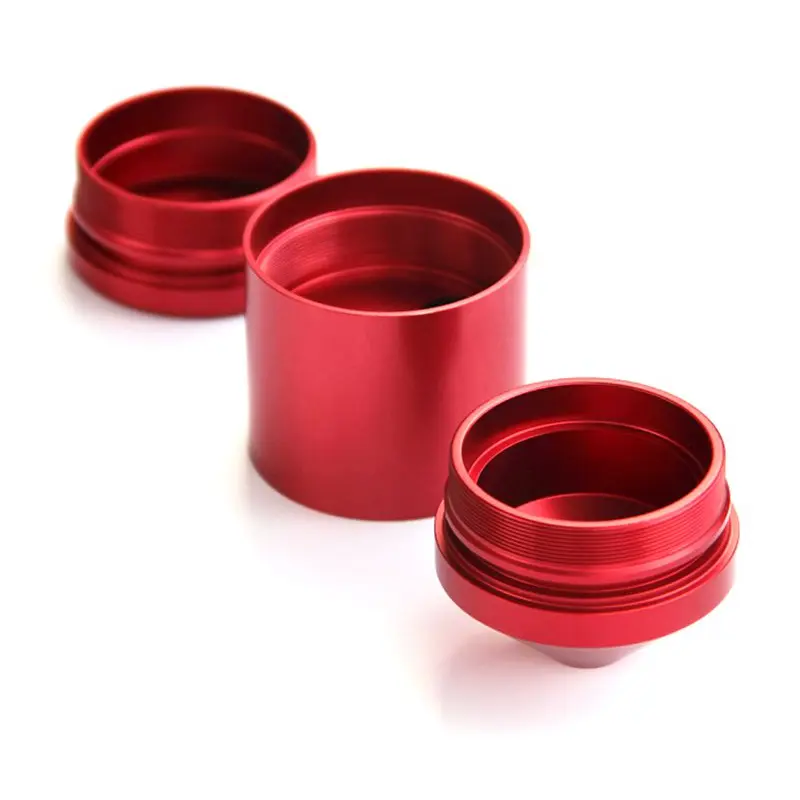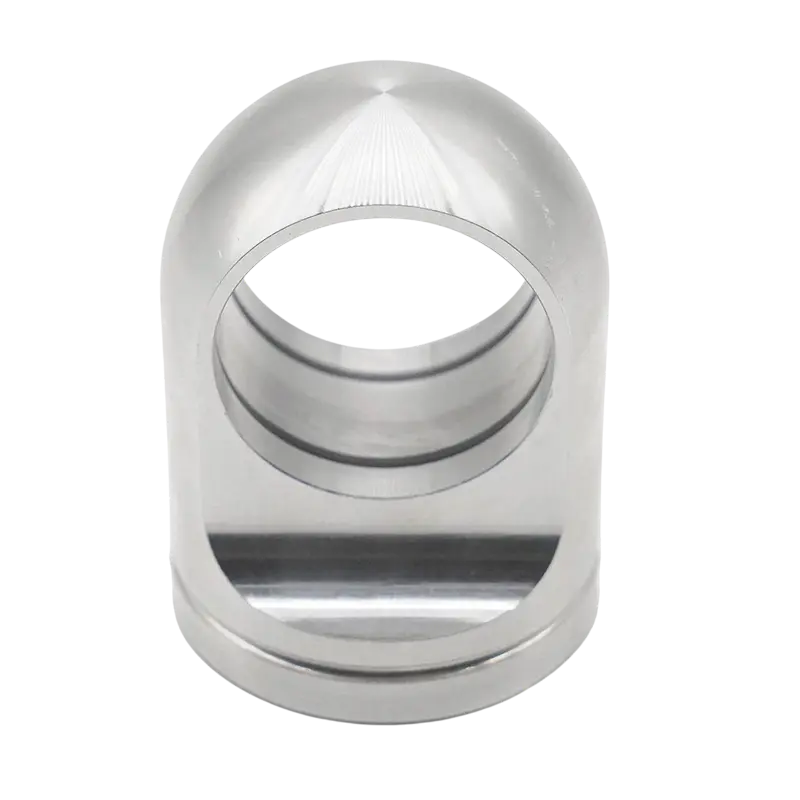CNC Turning Services
Efficient CNC turning services with fast lead times and competitive pricing from rapid prototyping to production runs.
Ensure you get high-quality CNC turned parts with features you need.
Turned parts manufacturer
Our CNC turning services custom prototypes and end-use production parts in as fast as 1 day. We use a CNC lathe with live tooling so features like axial and radial holes, flats, grooves, and slots can be machined.
As an industry AS9100 and ISO9001:2015 certified machine shop, we ensure you will receive the high-performance components you want with the mission-critical configurations you need.
Precision CNC Turning Services for Complex Components
With advanced technology software and extensive experience working with exotic alloys and specialty metals, RJC has the CNC turning expertise for all your complex machined component needs.
Our in-house 18” diameter x 20” length Turning centers allow our skilled machinists to form performance-built components from specialty metals.

From Prototyping to Production
CNC machining is a computerized and versatile manufacturing process ideal for rapid prototyping and on demand production.
Here are the custom CNC services available at the RJCmold.
Advantages of CNC Turning
Some of these same features can also be made on a CNC mill, but this would be slower and is not optimized for maximum efficiency.

Differences Between CNC Turning and Milling
CNC turning is good for projects that need cylindrical part, whereas CNC milling should be used for projects where cylindrical features are not required. Complex parts that require prismatic and cylindrical features may use a combination of milling and turning.
During CNC turning, the workpiece rotates while a cutting tool subtracts material.
CNC milling uses a different approach, moving the tool along a stationary workpiece. CNC milling may be used as a secondary finish to add definition.
Tolerances
As an ISO 9001 certified company, we machine CNC turning lathe parts to meet tight tolerance requirements. Based on your design, our CNC lattes can reach tolerances of up to ±0.005”. Our standard tolerances for CNC milled metals is ISO 2768-m and ISO 2768-c for plastics.
| Description | General Tolerance |
|---|---|
| Distance Dimensions | For features of size (Length, width, height, diameter) and location (position, concentricity, symmetry) +/- 0.005”. |
| Orientation and Form Dimensions | 0-12″ +/- 0.005″, Angularity 1/2 degree. For 24″ and beyond please consult RJCmold’s Manufacturing Standards. |
| Edge Condition | Sharp edges will be broken and deburred by default. Critical edges that must be left sharp should be noted and specified on a print. |
Please check out RJCmold’s Manufacturing Standards for more information on tolerances per process. Unless we have agreed to other tolerances in your Quote, we will work to achieve and hold the tolerances noted.
RJCMold CNC Materials
Our CNC turning processes are compatible with a wide range of materials, including machine-grade metals and plastics. Depending on your applications, we can create precise rapid prototypes and low-volume production from various superior-quality materials. Check out some of the common materials for your CNC turning projects.
| Material | Available Varieties |
|---|---|
| Aluminum |
|
| Brass/Bronze |
|
| Copper |
|
| Plastics |
|
| Steel |
|
| Titanium |
|
| Zinc |
|
Additional alloys and tempers are available upon request. We can source to your project specifications.
Surface Finishes for CNC Turning
With a wide selection of surface finishes, RJCmold can help improve the surface qualities of your products. Surface finishes applied to your CNC turned parts aim at improving their appearance, surface hardness and roughness, chemical and corrosion resistance, etc. They also help hide any visible tool marks from areas cut with live tooling. Here are some of your top choices.

What is CNC Turning?
Turning is a process by which material is cut to create round shapes, typically using a CNC Lathe. The workpiece is placed inside the lathe and rotates while a cutter removes material until only the desired shape remains.
Turning is ideal for cylindrical parts and is primarily done using round rod material, but square and hexagonal bar stock can also be used.
The primary objective of CNC turning is to machine parts having shapes that can be formed by feeding a cutter into a rotating bar of raw material. Turning can also be used to reduce the diameter of a workpiece to a desired dimension. Lathe turning is mainly used for shaping metal or wood. CNC lathes are commonly used in metalworking and metal spinning processes. CNC lathes produce accurate round shapes, often with precision outer diameter (OD) and inner diameter (ID).


